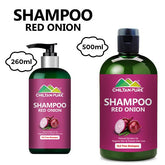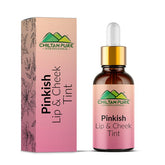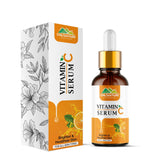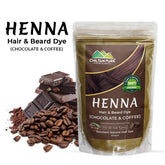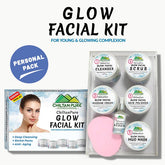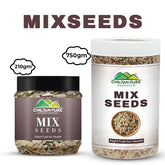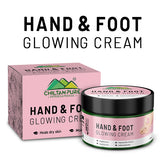Essentials Oil
Essential oils are natural products derived from aromatic plants, traditionally used worldwide for disinfection, as an anti-inflammatory, relaxing, and stimulating substances, with potential and modern exploitation in clinical medicine. The chemical composition of these essential oils varies widely depending upon the geographical location, botanical origin, genetics, bacterial endophytes, and extraction techniques. Essential oils are used in the food and cosmetic industries and as natural alternatives to synthetic preparations to prevent and treat infectious diseases. They traditionally treat other conditions like respiratory tract, digestive system, gynecological, cardiovascular, nervous system, and skin infections. Many of them have shown anticancer activities, too. Essential oil is a highly volatile substance isolated by a physical process from an odoriferous plant of a single botanical species. The oil bears the plant's name from which it derives, for example, rose oil or peppermint oil.History
 The first records of essential oils come from ancient India, Persia, and Egypt. Greece and Rome conducted extensive trade in odoriferous oils and ointments with the countries of the Orient. These products were probably extracts prepared by placing flowers, roots, and leaves in fatty oils. In most ancient cultures, odorous plants or resinous products were used directly. Only with the coming of the golden age of Arab culture was a technique developed to distill essential oils. The Arabs were the first to distill ethyl alcohol from fermented sugar, thus providing a new solvent for extracting essential oils in place of the fatty oils.
By about 1500, cedarwood oil, calamus oil, costus oil, rosemary oil, spike oil cinnamon oil, benzoin oil, and myrrh oil were introduced. The Swiss physician and alchemist Paracelsus alchemical theories played a role in stimulating physicians and pharmacists to seek essential oils from aromatic leaves, woods, and roots.
Starting from the time of Marco Polo, the much-prized spices of India, China, and the Indies served as the impetus for European trade with the Orient. In Europe, by the middle of the 18th century, about 100 essential oils were introduced, although there was little understanding about the nature of the products. As chemical knowledge expanded in the late 1800s and early 1900s, many well-known chemists took part in the chemical characterization of essential oils. Improvement in the understanding of essential oils led to a sharp expansion in production. The use of the volatile oils in medicine became entirely subordinate to uses in foodstuffs, beverages, and perfumes. Oils of turpentine and peppermint were produced before 1800 in the United States. Within the next several decades, oils of four indigenous American plants became important commercially—namely, sassafras, wormwood, wintergreen, and sweet birch. Since 1800 many essential oils have been prepared, but only a few have attained commercial significance.
The first records of essential oils come from ancient India, Persia, and Egypt. Greece and Rome conducted extensive trade in odoriferous oils and ointments with the countries of the Orient. These products were probably extracts prepared by placing flowers, roots, and leaves in fatty oils. In most ancient cultures, odorous plants or resinous products were used directly. Only with the coming of the golden age of Arab culture was a technique developed to distill essential oils. The Arabs were the first to distill ethyl alcohol from fermented sugar, thus providing a new solvent for extracting essential oils in place of the fatty oils.
By about 1500, cedarwood oil, calamus oil, costus oil, rosemary oil, spike oil cinnamon oil, benzoin oil, and myrrh oil were introduced. The Swiss physician and alchemist Paracelsus alchemical theories played a role in stimulating physicians and pharmacists to seek essential oils from aromatic leaves, woods, and roots.
Starting from the time of Marco Polo, the much-prized spices of India, China, and the Indies served as the impetus for European trade with the Orient. In Europe, by the middle of the 18th century, about 100 essential oils were introduced, although there was little understanding about the nature of the products. As chemical knowledge expanded in the late 1800s and early 1900s, many well-known chemists took part in the chemical characterization of essential oils. Improvement in the understanding of essential oils led to a sharp expansion in production. The use of the volatile oils in medicine became entirely subordinate to uses in foodstuffs, beverages, and perfumes. Oils of turpentine and peppermint were produced before 1800 in the United States. Within the next several decades, oils of four indigenous American plants became important commercially—namely, sassafras, wormwood, wintergreen, and sweet birch. Since 1800 many essential oils have been prepared, but only a few have attained commercial significance.
How do essential oils work?
 We can use essential oils in aromatherapy.
The chemicals in essential oils can interact with your body in several ways.
When applied to your skin, some plant chemicals are absorbed. It's thought that specific application methods can improve absorption, such as using heat or to different body areas. However, research in this area is lacking.
Inhaling the aromas from essential oils can stimulate areas of your limbic system, a part of your brain that plays a role in emotions, behaviours, sense of smell, and long-term memory. Interestingly, the limbic system is heavily involved in forming memories, partly explaining why familiar scents trigger memories or emotions.
The limbic system also controls several unconscious physiological functions, such as breathing, heart rate, and blood pressure. As such, some people claim that essential oils can exert a physical effect on your body. Essential oils can be inhaled or diluted and applied to the skin, and they may stimulate your sense of smell or have medicinal products when absorbed.
We can use essential oils in aromatherapy.
The chemicals in essential oils can interact with your body in several ways.
When applied to your skin, some plant chemicals are absorbed. It's thought that specific application methods can improve absorption, such as using heat or to different body areas. However, research in this area is lacking.
Inhaling the aromas from essential oils can stimulate areas of your limbic system, a part of your brain that plays a role in emotions, behaviours, sense of smell, and long-term memory. Interestingly, the limbic system is heavily involved in forming memories, partly explaining why familiar scents trigger memories or emotions.
The limbic system also controls several unconscious physiological functions, such as breathing, heart rate, and blood pressure. As such, some people claim that essential oils can exert a physical effect on your body. Essential oils can be inhaled or diluted and applied to the skin, and they may stimulate your sense of smell or have medicinal products when absorbed.
Distillation
The most common method for isolating essential oils, but other processes, including extraction using fat, maceration, solvent extraction, and mechanical pressing, used for specific products is distillation. Younger plants produce more oil than older ones, but old plants are richer in more resinous and darker oils because of the continuing evaporation of the lighter fractions of the oil. Out of many plant species, essential oils are well characterized and identified from only a few thousand plants. The oils are stored as microdroplets in the glands of plants. After diffusing through the walls of the glands, the droplets spread over the plant's surface before evaporating and filling the air with perfume.Commercial application
 The function of the essential oil in a plant is not well understood. Odours of flowers probably aid in natural selection by attracting certain insects. Leaf oils, wood oils, and root oils may protect against plant parasites or depredations by animals. Few essential oils are involved in plant metabolism, and some investigators maintain that many of these materials are waste products of plant biosynthesis.
Commercially, essential oils are used in three primary ways: as odorants, they are used in cosmetics, perfumes, soaps, detergents, and miscellaneous industrial products ranging from animal feeds to insecticides to paints; as flavours, they are present in bakery goods, candies, confections, meat, pickles, soft drinks, and many other food products; and as pharmaceuticals, they appear in dental products and a wide, but diminishing, group of medicines.
The function of the essential oil in a plant is not well understood. Odours of flowers probably aid in natural selection by attracting certain insects. Leaf oils, wood oils, and root oils may protect against plant parasites or depredations by animals. Few essential oils are involved in plant metabolism, and some investigators maintain that many of these materials are waste products of plant biosynthesis.
Commercially, essential oils are used in three primary ways: as odorants, they are used in cosmetics, perfumes, soaps, detergents, and miscellaneous industrial products ranging from animal feeds to insecticides to paints; as flavours, they are present in bakery goods, candies, confections, meat, pickles, soft drinks, and many other food products; and as pharmaceuticals, they appear in dental products and a wide, but diminishing, group of medicines.
Methods of production
The first step in isolating essential oils is crushing or grinding the plant material to reduce the particle size and rupture some of the cell walls of oil-bearing glands. Three different methods of steam distillation are practiced. In the oldest and most straightforward method, a vessel containing water and the chopped or crushed plant material is heated by a direct flame. A water-cooled condenser recovers the water vapor and volatile oil. This original method is being replaced by a process in which the plant material is suspended on a grid above the water level, and steam from a second vessel is introduced under the grid. The volatiles are condensed, and the oil is separated. In the third process, the ship containing the plant material on a grid is heated to prevent steam condensation, so that dry distillation is attained. In most cases, it is possible to shorten the long enfleurage process by extracting the essential oils using molten fat for one to two hours at a temperature ranging from about 45° to 80° C (110° to 175° F). A procedure called expression is applied only to citrus oils, and the outer coloured peel is squeezed in presses, and the oil is decanted or centrifuged to separate water and cell debris. This method is used for sweet and bitter orange oil, lemon, lime, mandarin, tangerine, bergamot, and grapefruit. Much oil is produced as a by-product of the concentrated-citrus-juice industry.Chemical composition
Organic compounds consisting of multiples of isoprene units (containing five carbon atoms) are the most dominant constituents of essential oils. Individual oils, however, may have appreciable quantities of straight-chain, aromatic, or heterocyclic compounds. Garlic oil contains allyl dimethyl sulphide, essential oil contains traces of indole and anthranilic acid esters, oil of violets contains normal alcohols and aldehydes, and many oils contain phenols and other aromatic chemicals. Both hydrocarbons and oxygenated compounds such as alcohols, aldehydes, ketones, acids, esters, oxides, lactones, acetals, and phenols are responsible for the characteristic odours and flavors. Essential oils are generally expensive, ranging from several U.S. dollars per kilogram on the low side to several thousand dollars per kilogram. The high cost of the natural oils coupled with their limited availability has encouraged a search for substitutes. Significant progress has been made in synthesizing individual components such as geraniol, citral, linalyl acetate, and the like. These synthetics have been combined with natural oils to extend supplies, and they have also blended in an attempt to duplicate the oils themselves. Such reconstituted oils usually lack specific odour notes of the natural products because of an absence of trace ingredients, often unidentified, that may be present in the natural oils. They also tend to have a more "chemical" odour because of trace impurities in the synthetics that are different from the components of natural oils.Popular types
Here's a list of 10 popular essential oils and the health claims associated with them:- Peppermint: used to boost energy and aid digestion
- Lavender: used to relieve stress
- Sandalwood: used to calm nerves and help with focus
- Bergamot: used to reduce stress and improve skin conditions like eczema
- Rose: used to improve mood and reduce anxiety
- Chamomile: used to improve mood and relaxation
- Ylang-Ylang: used to treat headaches, nausea, and skin conditions
- Tea Tree: used to fight infections and boost immunity
- Jasmine: used to help with depression, childbirth, and libido
- Lemon: used to aid digestion, mood, headaches, and more
Lavender oil
 Lavender is oil. "It's gentle and has a lot of benefits. You can use it in a variety of ways," Try adding it to a bath or diffuser as aromatherapy, adding to water to make a room spray or body spritzer, or combining with a base oil to make body oil.
Lavender can help with stress, pain, and sleep. "Before the discovery of antiseptics, lavender also used as a cleaning agent in hospitals, lavender oil (and tea tree oil) can potentially disrupt hormones in young boys.
Lavender is oil. "It's gentle and has a lot of benefits. You can use it in a variety of ways," Try adding it to a bath or diffuser as aromatherapy, adding to water to make a room spray or body spritzer, or combining with a base oil to make body oil.
Lavender can help with stress, pain, and sleep. "Before the discovery of antiseptics, lavender also used as a cleaning agent in hospitals, lavender oil (and tea tree oil) can potentially disrupt hormones in young boys.
Tea tree oil
 people use tea tree oil as an antiseptic, antimicrobial or antifungal. You can also use it to help with:
Acne. Take a cotton swab and dip it into tea tree essential oil. Then, apply it directly to the acne this is one exception where you don't have to dilute it. It can help resolve acne faster.
Athlete's foot and ringworms. Dilute it with a carrier oil (a base or vegetable oil like coconut or jojoba oil that helps dilute essential oils) and put the blend on the affected skin.
One note of caution: Since tea tree oil can be neurotoxic. You should not diffuse it if you have small children or animals at home.
people use tea tree oil as an antiseptic, antimicrobial or antifungal. You can also use it to help with:
Acne. Take a cotton swab and dip it into tea tree essential oil. Then, apply it directly to the acne this is one exception where you don't have to dilute it. It can help resolve acne faster.
Athlete's foot and ringworms. Dilute it with a carrier oil (a base or vegetable oil like coconut or jojoba oil that helps dilute essential oils) and put the blend on the affected skin.
One note of caution: Since tea tree oil can be neurotoxic. You should not diffuse it if you have small children or animals at home.
Frankincense oil
 Known as the "king of oils," frankincense can help with inflammation, mood, and sleep. It can also improve asthma and might prevent gum disease.
Frankincense oil has a woody, spicy scent and can be used as aromatherapy and can be found in skin creams. Makes sure you dilute frankincense oil before applying it to your skin.
Known as the "king of oils," frankincense can help with inflammation, mood, and sleep. It can also improve asthma and might prevent gum disease.
Frankincense oil has a woody, spicy scent and can be used as aromatherapy and can be found in skin creams. Makes sure you dilute frankincense oil before applying it to your skin.
Peppermint oil
 Peppermint oil is known to:
Peppermint oil is known to:
- Be an anti-inflammatory, antifungal and antimicrobial.
- Ease headaches.
- Fight fatigue.
- Lift mood.
- Reduce gut spasms.
- Support digestion.
- Support memory.
Eucalyptus oil
 Eucalyptus is a great essential oil on hand during the cold season. It soothes a stuffed-up nose by opening your nasal passages so you can breathe easier. (Peppermint oil can also help with this.)
Its antimicrobial and anti-inflammatory properties can also relieve pain and fight against the herpes simplex virus.
Take precautions when using eucalyptus oil, making sure to dilute it before applying topically. It should not be ingested and can have dangerous side effects on children and pets.
Eucalyptus is a great essential oil on hand during the cold season. It soothes a stuffed-up nose by opening your nasal passages so you can breathe easier. (Peppermint oil can also help with this.)
Its antimicrobial and anti-inflammatory properties can also relieve pain and fight against the herpes simplex virus.
Take precautions when using eucalyptus oil, making sure to dilute it before applying topically. It should not be ingested and can have dangerous side effects on children and pets.
Lemon oil
 Lemon oil can be diffused into the air or applied topically to your skin with a carrier oil.
Lemon oil is known to:
Lemon oil can be diffused into the air or applied topically to your skin with a carrier oil.
Lemon oil is known to:
- Reduce anxiety and depression.
- Reduce pain.
- Ease nausea.
- Kill bacteria.
Lemongrass oil
 Lemongrass oil has a strong citrus scent and is known to help relieve stress, anxiety, and depression.
Its antibacterial properties make it an excellent natural remedy to heal wounds and kill bacteria. It has been shown to prevent the growth of fungus found in athletes' feet, ringworm, and jock itch.
Using lemongrass oil can help reduce blood sugar in those with type 2 diabetes.
Be sure to use a carrier oil before applying it to your skin.
Lemongrass oil has a strong citrus scent and is known to help relieve stress, anxiety, and depression.
Its antibacterial properties make it an excellent natural remedy to heal wounds and kill bacteria. It has been shown to prevent the growth of fungus found in athletes' feet, ringworm, and jock itch.
Using lemongrass oil can help reduce blood sugar in those with type 2 diabetes.
Be sure to use a carrier oil before applying it to your skin.
Orange oil
 Orange oil is diffused into the air or even used as a natural cleaner in your home.
Orange oil is known to:
Orange oil is diffused into the air or even used as a natural cleaner in your home.
Orange oil is known to:
- Kill bacteria.
- Reduce anxiety.
- Reduce pain.
Rosemary oil
 Rosemary to add flavor to some of your recipes. But using rosemary oil also has additional benefits like improving brain function, promoting hair growth, reducing pain and stress, lifting your mood, and reducing joint inflammation.
Rosemary oil is safe in aromatherapy and topically on the skin with a carrier oil. If you're pregnant or have epilepsy or high blood pressure, avoid rosemary oil.
Rosemary to add flavor to some of your recipes. But using rosemary oil also has additional benefits like improving brain function, promoting hair growth, reducing pain and stress, lifting your mood, and reducing joint inflammation.
Rosemary oil is safe in aromatherapy and topically on the skin with a carrier oil. If you're pregnant or have epilepsy or high blood pressure, avoid rosemary oil.
Bergamot oil
What is bergamot? If you're a fan of Earl Grey tea, then you have had bergamot. The oil, which has a fruity and floral aroma, can be diffused or applied topically with a carrier oil (but it can make your skin sensitive to the sun). Bergamot oil is known to:- Reduce anxiety.
- Lift mood.
- Lower blood pressure.
Cedarwood oil
 Cedarwood oil, which has antioxidant and antibacterial properties, is a popular ingredient in insect repellent, shampoo, and deodorant with its woodsy scent. But you can also use cedarwood oil to help with sleep and anxiety.
You can use cedarwood oil as aromatherapy and a topical treatment mixed with a carrier oil.
Cedarwood oil, which has antioxidant and antibacterial properties, is a popular ingredient in insect repellent, shampoo, and deodorant with its woodsy scent. But you can also use cedarwood oil to help with sleep and anxiety.
You can use cedarwood oil as aromatherapy and a topical treatment mixed with a carrier oil.
How to use essential oils
Because essential oils are so mindful solid about why and how you're using them, only small amounts, typically just a few drops, are used. "It's also a good idea not to use them routinely, as your body can get used to them, lowering their effectiveness," Here are some ways you can use essential oils:Diffuse them
You can diffuse essential oils, which is a type of aromatherapy. "It's a great way to change your mood quickly. As you breathe in, the oil's aroma immediately stimulates your central nervous system, triggering an emotional response "It can reduce anxiety and stress response quickly." Mix essential oils and water in an essential oil diffuser and turn on the magic. A diffuser is a device that disperses tiny oil particles around the room so you can breathe them in. Follow your diffuser's directions for the proper oil-to-water ratio. There are several other aromatherapy methods. "Whichever method you choose, avoid direct contact with the essential oil and dilute it first." Other aromatherapy methods include: The old-fashioned way. Take deep breaths of the aroma after opening the bottle. Dry evaporation. Put a few drops of essential oil on a cotton ball and smell the aroma as it disperses. Steam inhalation. Put a few drops of essential oil in a bowl of hot water. Put your head over the bowl, a towel over your head, and breathe in the steam. One caveat is that aromatherapy may not work as well for older adults with dementia or behaviour problems. That may be because people tend to experience loss of smell as they get older.Roll directly on your skin
You can also reap the benefits by applying essential oils to your skin, where it's absorbed into your body—directly using the most crucial oils to your skin without diluting them. "With few exceptions, it's best to dilute the essential oil with a carrier oil, such as coconut or jojoba oil, to avoid skin irritation," Some people put their essential oil blend into a small rollerball bottle for more accessible application.Ingest them
Some people take essential oils orally in teas, supplements, or even via a drop or two on their tongue. "Unless you're directed by a trained herbalist, "Even with just a few drops of essential oil, you're taking a lot of plant material without realizing it. They can even burn the mucosal lining in your mouth." Some food recipes call for essential oil like orange, but always check to dose and follow directions closely. Be careful when using essential oils in children, people with weakened immune systems, pregnant women, and seniors. "Some essential oils can be harmful to the liver and nervous system when used in excess. Tea tree and eucalyptus oil have also been known to cause seizures They're toxic for animals as well."Conclusions
Conclusions Essential oils' antibacterial action has stimulated the interest in food, skincare, and pharmaceuticals. At the same time, their future use of natural additives arose from a desire to replace antibiotics due to the high resistance displayed by a variety of infections. Although essential oils promise to offer a solution to the problem of antibiotic resistance, more research is needed to ensure the safety of each essential oil and determine the optimal dose for human intake. One of the most important factors to consider while using oils to tackle harmful bacteria antimicrobial resistance is to support research to improve oil yields. Although essential oils are abundant in nature, they are now only found in small quantities. Although essential oils were distributed by nature, they appear only in low concentrations. Future studies should focus on extraction methodologies that are technically and economically viable to improve recovery yields and also ensure that the methods do not harm the bioactive components of the essential oils. Furthermore, it is crucial to evaluate the effect of the combination of essential oils and pH values to enhance antimicrobial activity and study the impact of combining water activity and critical oils. Studies in vivo and clinical trials are needed to evaluate the potential of these essential oils as antibiotic substitutes or as interveners in this type of treatment.
Tags:
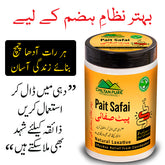



![Red Onion Oil 🧅 Reduces Hair Fall & Accelerates Hair Regrowth [پیاز کا تیل].. Trending.... 🔥 - ChiltanPure](http://chiltanpure.com/cdn/shop/products/red-onion-oil-reduces-hair-fall-amp-accelerates-hair-regrowth-piaz-ka-til-trending-394813_165x.jpg?v=1707464619)
![Red Onion Oil 🧅 Reduces Hair Fall & Accelerates Hair Regrowth [پیاز کا تیل].. Trending.... 🔥 - ChiltanPure](http://chiltanpure.com/cdn/shop/products/red-onion-oil-reduces-hair-fall-amp-accelerates-hair-regrowth-piaz-ka-til-trending-329640_165x.jpg?v=1708127491)
